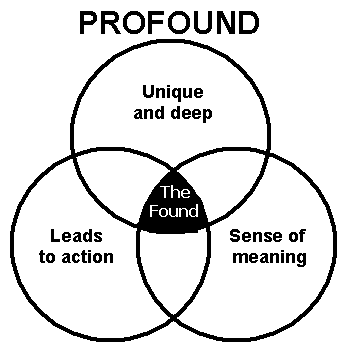It’s time for the Happy Friday Dance! (Step to the left, take a step back, now jump and click your heels….) Now that you have had your exercise, lets join Kramer and Newman as they try to run their own talk show out of Kramer’s apartment (my favorite episode if you are playing along at home). Kramer is the host and Newman is the sidekick:
NEWMAN: Lately, though, I’ve been, uh, – I’ve been buying the generic brand of waxed beans. You know, I rip off the label and I can hardly tell the difference.
KRAMER: Well, we’ve officially bottomed out. Who’s our next guest?
NEWMAN: We’ve got no one!
KRAMER: We need a new format. We should shut down and re-tool. [Kramer pulls the plug and the “set” goes dark.]
Sometimes talk shows, ideas and brands go stale like Aunt Mae’s potato salad after a hot August picnic (hard for me to fully grasp this mental image as I sit here in Utah and the mercury is now only rising to “tolerable.”) Staleness can occur from over use and a loss or “specialness” or simply from neglect. Whatever the reason, at times it’s best to stop what you are doing and re-tool.
Take Starbucks for example. By now you have probably read about (or experience firsthand) the early store closing a few days ago of all 7,100 U.S. Starbucks locations to take time to retrain their baristas. In setting up the event, Howard Shultz, CEO of Starbucks, said:
We will close all of our U.S. company-operated stores to teach, educate and share our love of coffee, and the art of espresso. And in doing so, we will begin to elevate the Starbucks Experience for our customers. We are passionate about our coffee. And we will revisit our standards of quality that are the foundation for the trust that our customers have in our coffee and in all of us.
I think this was a brave (and needed) move. Sure, Howard could have simply sent a memo on a TPS Report Cover Sheet for all to read and sign off. But stopping what you are doing long enough to pause and re-tool is so much more powerful. As you know, this stoppage was not only for the employees (or partners as Starbucks calls them) to get in some training; it was equally (and maybe more so) for customers to take notice that there was a stoppage on the assembly line. Howard wants you to take notice that he also noticed the drop in quality and has pulled the chain to stop the advancing assembly line.
But ultimately, will it make a difference? Only time will tell. But here are some of the things we learned from Uncle Howard about shutting down and re-tooling:
- If the public has noticed the “watering down” of the customer experience, the process for change should be open to the public to experience as well.
- A loss in revenue during the time you shut down and re-tool can be made up by well planned and executed PR covering the change.
- Just like a lateral in football, sometimes you momentarily have to go backward to keep moving forwards.
Is time for you to shutdown and retool?
Happy Friday ya’ll!
This post is part of a weekly series, Seinfeld on Marketing.
Filed under: Branding, Loyalty, Marketing, Public Relations, Seinfeld on Marketing | 5 Comments »



 One way is to use eye-catching and surprising “marketing” stunts. When these stunts are used, it’s usually not the company that is remembered but the shocking stunt or the funny one liner that is remembered. Think Super Bowl ads. How many times have you heard in the last few weeks about a funny or surprising Super Bowl ad but the person telling you about it cannot remember the company behind the ad? I know that I am getting sick of this. (Side note: I couldn’t even remember the company that paid the lady in the photo to the right $10,000 to tattoo her forehead with their company logo, but luckily I remembered the stunt so I eventually found the photo).
One way is to use eye-catching and surprising “marketing” stunts. When these stunts are used, it’s usually not the company that is remembered but the shocking stunt or the funny one liner that is remembered. Think Super Bowl ads. How many times have you heard in the last few weeks about a funny or surprising Super Bowl ad but the person telling you about it cannot remember the company behind the ad? I know that I am getting sick of this. (Side note: I couldn’t even remember the company that paid the lady in the photo to the right $10,000 to tattoo her forehead with their company logo, but luckily I remembered the stunt so I eventually found the photo). 